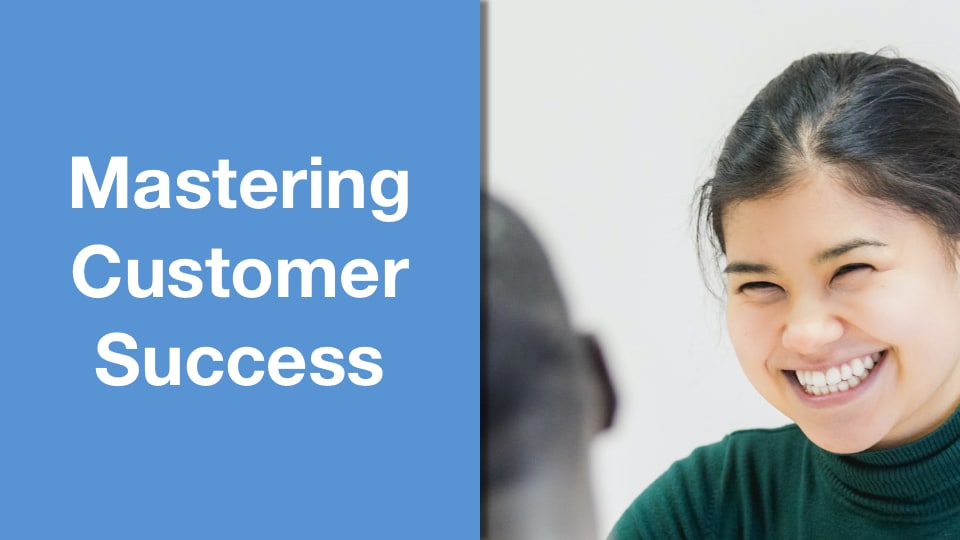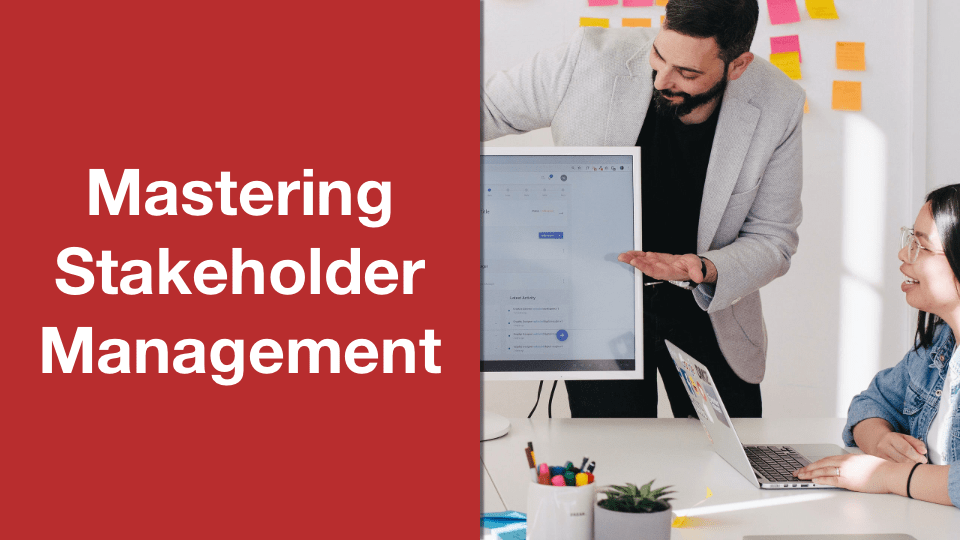The Customer Justice League – What Makes For Great CSMs?
As was pointed out when I asked for input to this article on LinkedIn, the environment a CSM operates within is as important to their success as the skills, experience and characteristics they themselves bring to the role. So, before you can answer questions about the person or the role you need for your organisation you should define what does customer success management mean in your company. The more focussed your definition, the clearer the criteria you can use to define your ideal CSM.
I have previously defined customer success management as:
Any effort invested by a company to ensure its customers realise the maximum value available from their investment in the company’s products or services.
That’s a long-term, company wide definition but it gives us clarity on the fundamental role played by the CSM in ensuring “customers realise the maximum value available” when deploying your solutions. For the rest of this article therefore the assumption is you have defined the CSM role to deliver on the core responsibilities of customer success management:
- Ensuring the customer realises the maximum value from their investment in your company’s products or solutions
- Making sure that there is a great working relationship between the customer and all of your customer facing departments
Well executed on these two core responsibilities should deliver satisfied customers with high levels of renewal, expansion and advocacy. What part your CSM team plays in delivering these ‘internal’ outcomes from a commercial and process perspective depends, as I’ve noted before, on exactly how you wish to prioritise the usually limited time of this highly valuable resource.
At a minimum your CSMs need to have:
- Relationship management and communication skills
- Organisational and time management skills
- Sufficient depth in the domain the company operates in and its core process, tools and procedures
- Sufficient expertise in both the product being sold and the best practices that support its effective use
- Sufficient knowledge of the disciplines of sponsorship, change management and governance
Additionally you will want your CSMs to have a healthy dose of commercial awareness: wherever you are on the ‘CSMs as Salespeople’ continuum you need CSMs to work hand in hand with sales at the initial handover stage, during the renewal process and to be engaged in expansion and advocacy conversations.
Furthermore, CSMs, as was also pointed out on LinkedIn, have to be prepared for the long haul. Customer success management is a system not a goal. Yes there are waymarks (renewals, expansions etc) that let us know how we’re doing but a CSM’s job is one of continual watchfulness, refinement and improvement. CSM’s who are enthusiastic, positive and pro-active by nature are temperamentally well suited to this challenge: life on the front line can be tough and having these qualities is undoubtedly a benefit.
No wonder then that finding and building a team of first class CSMs is tough.
Relationship Management & Communication Skills
As part of the preparation for this article I worked my way through 50 job postings for CSMs on LinkedIn. A full 88% specifically required both relationship management and communication skills. I’ve since been telling myself that the remaining 12% simply forgot to add it to their advert as Customer Success, like Sales, lives on relationships (including those conducted at a distance) and fails without clear and effective communication.
Why is this so?
Consider the human dynamics of the situation. A business case has been developed, a choice made and a purchase enacted so an expectation has been set. People now have reputation and career risks should they not make a success of the implementation of your solution. They should benefit enormously from the best practices and proven success framework their CSM will provide. For that to happen most effectively their CSM has to have understood the specifics of their situation, their challenge and the value they need to realise (communication skills) and then has to marshal the appropriate best practices and elements of your success framework to suit. This information must be conveyed in a clear, concise and structured manner to ensure it is consumable, and consumed, by the intended audience (communication skills). The absolute best basis for this is a set of relationships built on trust, established as quickly as possible and at the earliest opportunity (relationship management).
CSMs moreover have to bring these same skills to bear internally. More than perhaps any other team in the company they will over time act to align and engage every part of a company in service of the success of its customers.
Organisational And Time Management Skills
CSMs are typically busy people. Customers hate it when vendors turn up late, are unprepared or are disorganised. Not only does this waste their time, it wastes yours. It also demonstrates a lack of respect. For this and the obvious reasons of efficiency and effectiveness you want CSMs who are well organised and who can prioritise and manage their time.
If you are fortunate enough to have good systems which are well implemented then this can absolutely help your CSMs to manage, learn from and act on the data, information and insights these systems will contain and deliver. If good already this will help supercharge their organisation and their time management skills but be aware systems are not a cure for the disease of poor or no skills.
Sufficient Depth In The Domain
80% of the jobs I reviewed listed some form of domain knowledge as a requirement for the CSMs they wished to hire. I agree, with one caveat. Sufficient domain knowledge is the target. Sufficient will be different for every vendor and sufficient should be well defined. Reach for too much and otherwise excellent CSMs may be shown the door. Fall short however and you run the risk that:
- Your customers may not find your CSMs to be credible as partners
- Attaining trusted advisor status may be more challenging
- Your CSMs may take a long time to onboard to the complexities of the domain and your product and may have to be taught by your experts costing more time
- The advice and guidance they give to your customers may be sub-optimal which will of course have unwelcome consequences
There are ways to mitigate these risks. CSMs strong in other areas can often find ways to operate extremely effectively without deep domain knowledge. In addition it is good to remember that you are hiring for a wide range of skills, the profession is growing and evolving and finding fully formed CSMs with solid domain knowledge is going to continue to be tough.
So, make sure you think hard about the amount of domain knowledge required and set the bar as high as you feel certain is needed but no higher. For example, this may vary by segment such that only your largest and most complex customers need a CSM with deep domain knowledge.
Product And Best Practice Expertise
At first glance this may seem similar to domain knowledge but the two should not be confused. You are almost certainly going to have to train CSM hires in this area and it is likely to be where you put the greatest amount of effort into their on-boarding. The amount of effort required will vary but will almost certainly be needed.
This is perhaps best illustrated with an example. Let’s say you are a vendor of accounting software and you hire an accountant with a mind to having them become a CSM because you have determined that level of domain knowledge is required. This particular accountant has deep domain expertise (the theory and practice of accounting) but has to date used their own hand crafted spreadsheets as their accounting software. On day one as a CSM while they will understand completely why your software does the things it does they will have little to no idea about how you have translated the theory and practice of accounting into software and your user experience. Their product knowledge will be limited: it is highly likely for example that they will be unfamiliar with all of the clever time-saving and productivity features you’ve sprinkled liberally throughout your product.
Once again sufficient product knowledge is the key bar to establish. CSMs must understand how your product is used to support business outcomes and the realisation of value for your customers. Whether or not you also need them to have sufficiently deep product expertise to, for example, configure and customise your solution, will depend on the broader definition of the role in your organisation. Always bear in mind the risk that arming your CSMs with deep product knowledge can lead to CSMs who spend a lot of time answering ‘how to’ questions or doing lots of working in the product for the customer. In cases like this relationships tend to the tactical rather than the strategic. This is not necessarily a bad thing but be aware your customers are unlikely to view the person who rolls up their sleeves and fixes their reporting challenges as also being a strategic advisor to their business.
The best practices you advise your customers to follow when deploying and using your product also have to be acquired. They are most likely a combination of generic advice and guidance which would be similar for any vendor of similar software and the specific, secret sauce, that makes your product and the advice provided by your CSM team stand out from the crowd. In this case however there is no ’sufficient’ state. Certainly you want to establish and reach a solid baseline before you let your CSMs loose on your customers but the best practice library you use to enable your customers to succeed should and will continue to develop and must be a continual area of study for your CSM team.
Sponsorship, Change Management And Governance
Sponsorship, change management and governance are all key aspects of a successful implementation of any new technology or solution. CSMs should understand what these are, be aware of their importance and be well versed in the appropriate forms of execution for your solutions:
- As part of relationship management each account should have identified key sponsors whose role is clearly understood and who are managed and interacted with accordingly. CSMs need to understand this and how to do it.
- Similarly any technology implementation will require some amount of change. Better that change be managed leveraging your experience of how best to do it using your solution than not. I recently spoke with a leading Head Of Customer Success in EMEA who has trained his entire team on ADKAR, a well known change management model. He is ahead of the game: you can bet that utilising good change management tools & practices, aligned to the needs of his company’s solution, is high on the agenda at every one of his customers.
- And finally governance and the need for and role of bodies such as steering committees as well as the roles played by the individuals comprising those bodies. CSMs should be able to assist customers to recognise the need for appropriate governance structures and practices and to be able to work with them to ensure they are operating effectively.
In all of these areas needs will of course be different. An 80,000 seat roll out of an LMS for a Fortune 500 company will require very different governance, change management and sponsorship from a 25 person roll out of video conferencing in a startup. What’s important is that companies recognise what’s needed in their specific case and that their CSMs have the necessary level of skills and knowledge to recognise when things are not running as they should so that corrective action can be proposed and implemented and/or the situation escalated.



